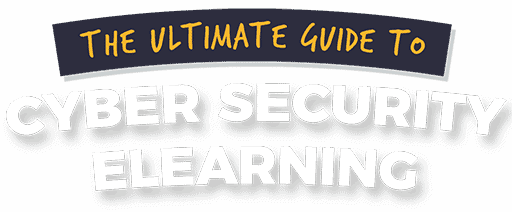Products
Explore Our Customised Security Awareness Training and Human Risk Management Solutions - Equip your team with the essential skills to defend against modern cyber threats. Our platform offers everything from phishing simulations to comprehensive policy management, empowering your workforce to enhance security and ensure compliance effectively.
Schedule Your Annual Awareness Campaign In A Few Clicks
Stop Phishing Attacks In Their Tracks With Award-Winning Phishing Software
Cyber Security eLearning to Explore our Award-Winning eLearning Library, Tailored for Every Department
Simplify Policy, Privacy, and Incident Management for Total Compliance
Industries
Explore the versatility of our solutions across diverse industries. From the dynamic tech sector to healthcare, delve into how our solutions are making waves across multiple sectors.
Creating A First Line Of Defence For Financial Service Organisations
A Security Awareness Training Solution For Large Enterprises
Engaging Security Awareness Training For The Education Sector
Transforming Security Awareness Training In The Tech Industry
A Go-To Security Awareness Solution For Governments
Embed A Culture Of Security Awareness - Even At Home
See Our Tailored Security Awareness For Healthcare Workers
Support Your Nis2 Compliance Requirements With Cyber Security Awareness Initiatives
Resources
From posters and policies to ultimate guides and case studies, our free awareness assets can be used to help improve cyber security awareness within your organisation.
Resources OverviewAn Indispensable Resource For Creating A Culture Of Cyber Awareness
Educate Employees About How To Detect And Prevent Phishing Attacks
Create A Security-Conscious Culture And Promote Awareness Of Cyber Security Threats
A Glossary Of Must-Know Cyber Security Terms
Download Our Free Awareness Assets To Improve Cyber Security Awareness In Your Organisation
The Ultimate Guide To Implementing Effective Cyber Security Elearning
Download These Complimentary Posters To Enhance Employee Vigilance
Hear How We’re Helping Our Customers Drive Positive Behaviour In Their Organisations
Audit Your Awareness Training And Benchmark Your Organisation Against Best Practice
About
With 18+ years of experience in the Cyber Security and Compliance market, MetaCompliance provides an innovative solution for staff information security awareness and incident management automation. The MetaCompliance platform was created to meet customer needs for a single, comprehensive solution to manage the people risks surrounding Cyber Security, Data Protection and Compliance.
Learn Why Metacompliance Is The Trusted Partner For Security Awareness Training
Join Us and Make Cybersecurity Personal
Meet the MetaCompliance Leadership Team
We Make It Easier To Engage Employees And Create a Culture of Cyber Awareness
















